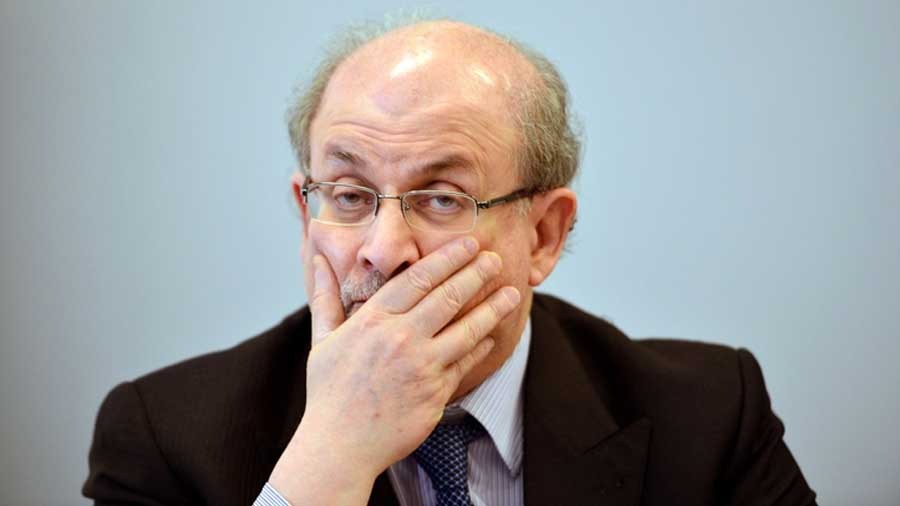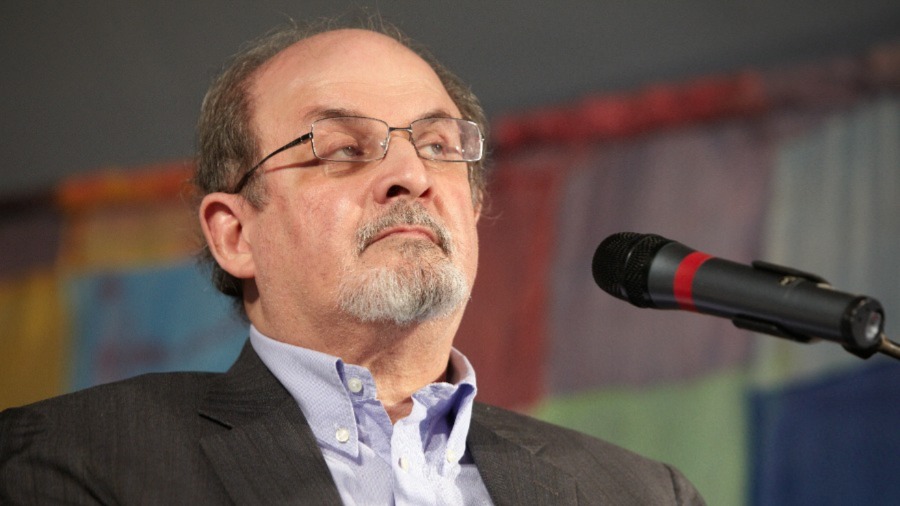I don’t suppose that Salman Rushdie’s knifer was protesting the author’s decision to defer Angelic Verses or that he ruined a daring genetic experiment arising out of his relationship with Padma Lakshmi.
Perhaps it was indeed an Iranian waiting the decades with a fatwa with no expiry date.
If that be true, the stabbing doesn’t say as much about the ‘other’ as it does about us. All of us.
One, it validates what we always feared: the death of the middle ground in our everyday lives. When was the last time you — and ‘you’ as in you the reader — said “I really don’t know” when asked to decide on where your opinion stood on a burning subject?
Two, when was the last time you considered both — for and against — perspectives and came to the conclusion that you could successfully argue in favour of either and, hence, would rather suspend judgement?
Three, when was the last time your inability to pronounce a polarised judgement was interpreted as mature, considering the complexities involved? When was ‘grey’ seen as a virtue in a binary world?
Four, is our incapacity to think about a subject from all dimensions the result of a shorter attention span that has, in turn, been derived from our smartphone obsession? This damn phone has seduced us; we rationalise little. Since even a well-reasoned non-committal stand requires complex thinking, most would rather express an extreme unchallenged opinion and move on. Easier appears better.
Five, the words “I don’t know” are uncool; they denote ignorance; seldom will you find such an individual being complimented for restraint. Abstention, my dear, is cowardice in the eyes of today's world.
Six, we have got to this point inspired by the institution of great Indian TV debate, where an anchor’s objective is to get the opposing sides to the brink of tearing each other’s ties, beards and hair bands. The more they do, the better for the TRPS and the higher the anchor’s income. Hate is entertainment; bad behaviour has been monetised.
Seven, a radical opinion and social media handle are like the convergence of nitrogen, oxygen, fluorine and chlorine; it must be an orgasm to provoke and generate 35mn views in just three days with a like-dislike ratio of 3439. Better and cheaper than going to the polls.
Eight, a dangerous animal has emerged; it does not need to believe in something it writes on social media. It needs to merely attach to any floating cause so that 2.49mn ‘likes’ can give it the feeling of a day well spent in influencing the world.
Nine, violence has been democratised. Most people do not simply disagree on social media; they are disagreeable. Few can decently dissent; most seek to imply that your parents never married, your IQ is 20 and your clothes don’t fit. If you met these people over dinner, they would still be moderately tolerable but if you got along with them on Facebook, you would ‘unfriend’.
Ten, the great conversations have died. Conversations where you heard while the other person spoke, where you permitted the other person to complete, where “May I say something?” was a permission you floated and waited, where you didn’t jump out of your seat to make a point and where you didn’t conduct yourself with the agitated voice of a trade unionist demanding a raise.
Eleven, you go through life perpetually offended about everything except being offended that you are indeed offended about everything. The conclusion: “My sentiments have been hurt and you, sir, in the circumstances have no right to live.” There is no moderation. The word is ‘Cancel’, period.
In the dystopian tomorrow, we will all carry concealed knives, seek the perceived-Rushdies from within, claim ‘hurt sentiment’ as legitimate retribution and seek ‘justice’.
Millions of haters will rise from those social media posts until, one day, man’s inhumanity to man will be a bigger tragedy awaiting the world than a rising sea level, global warming and widening carbon footprint.
We will perish ourselves faster than the world will.

